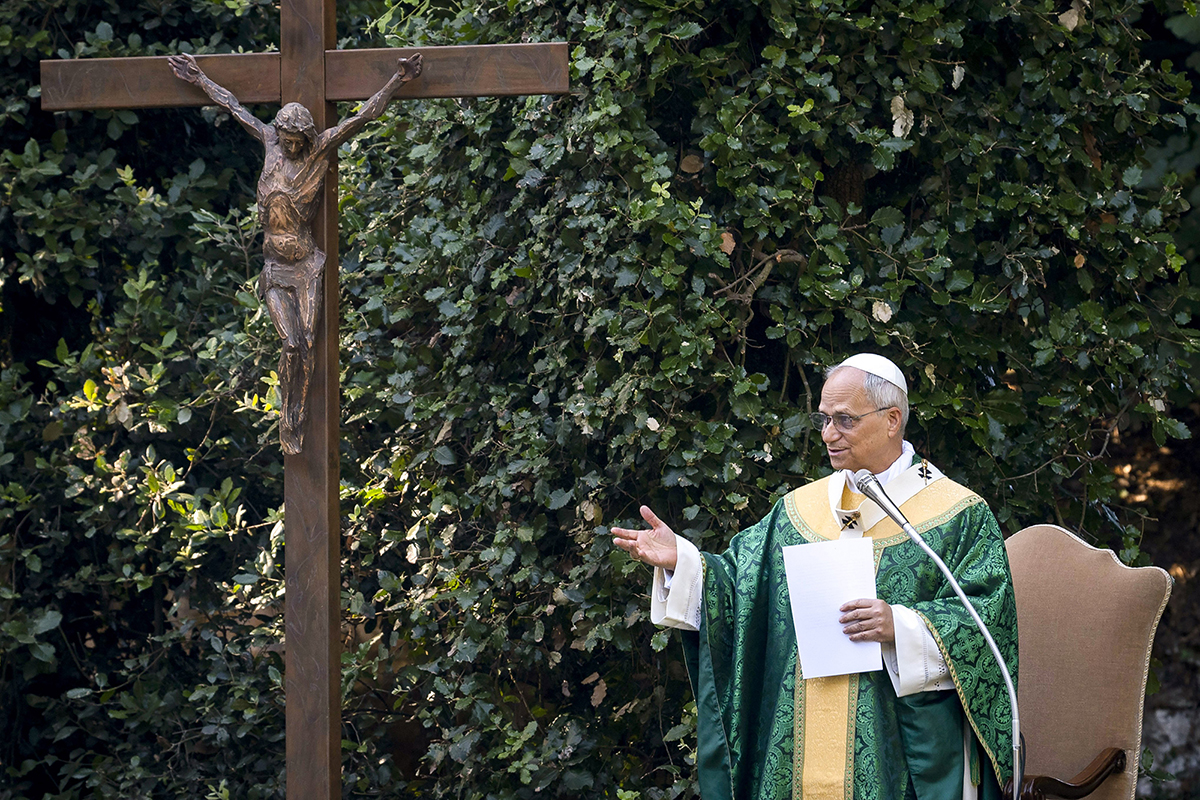DEAR FATHER | Act of Contrition gets to the heart of confession
Is confession valid if the priest doesn’t hear your Act of Contrition?

We might remember being told as we grew up that we need to apologize to someone for something we did. Out of personal pride or perhaps anger at what they did to us, our apology was halfhearted at best. We said we were sorry, but in our heart we really weren’t, and the way we said our apology most likely reflected our state of mind and heart.
When approaching the sacrament of confession, the Church as a good mother wants her children not just to say they’re sorry in a perfunctory way, but to instead say it from the depths of their hearts. Thus, contrition for sin is the most important act of the penitent. Contrition means that penitents are sorry for their sins and deplore what they have done, as their actions have hurt their relationship with God, the community of the Church and anyone in particular toward whom the sinful act may have been directed. Out of this sorrow and lament for what they have done, penitents make a strong resolution to not sin again.
Such an act of repentance answers the central call of the Lord in the Gospel: “This is the time of fulfillment. The kingdom of God is at hand. Repent, and believe in the Gospel” (Mark 1:15). The words of Jesus here are meant to confound us in a positive way. To hear that the Kingdom of God is near at hand and the time of fulfillment is at hand is a clarion response to the yearning in our heart for God. Yet hearing this response may evoke different responses of repentance in different people.
Some at hearing the call of the approaching Kingdom of God desire to join it and repent but do so imperfectly. This means that the person realizes the ugliness of his or her life of sin and the frightful consequence of this life: eternal separation from God. To avoid such a penalty, the person decides to turn away from his or her former life.
Such imperfect contrition is the seed for more perfect contrition. Perfect contrition is based on a recognition of God’s great love for the person and how their sin has wounded this love. Out of a desire to love God above all else, the person repents, turning away from his or her former way of life full of false loves and turns to love fully the one who is love.
Even after enumerating one’s sins, the Church asks penitents to make an Act of Contrition to manifest their sorrow for sin out of God’s great love for them and their firm resolve to not sin again. Normally, this act should be done in the confessional. However, such an act may be omitted for pastoral reasons and is normally also omitted at a penance service, where it is typically prayed together. If it is omitted in the confessional, one way to include it as an expression of true sorrow would be to pray it in addition to the penance that was assigned by the priest.
This column appeared in a previous edition of the Review.
Father Mayo is pastor of St. Raphael Parish in south St. Louis.
We might remember being told as we grew up that we need to apologize to someone for something we did. Out of personal pride or perhaps anger at what they … DEAR FATHER | Act of Contrition gets to the heart of confession
Subscribe to Read All St. Louis Review Stories
All readers receive 5 stories to read free per month. After that, readers will need to be logged in.
If you are currently receive the St. Louis Review at your home or office, please send your name and address (and subscriber id if you know it) to subscriptions@stlouisreview.com to get your login information.
If you are not currently a subscriber to the St. Louis Review, please contact subscriptions@stlouisreview.com for information on how to subscribe.




